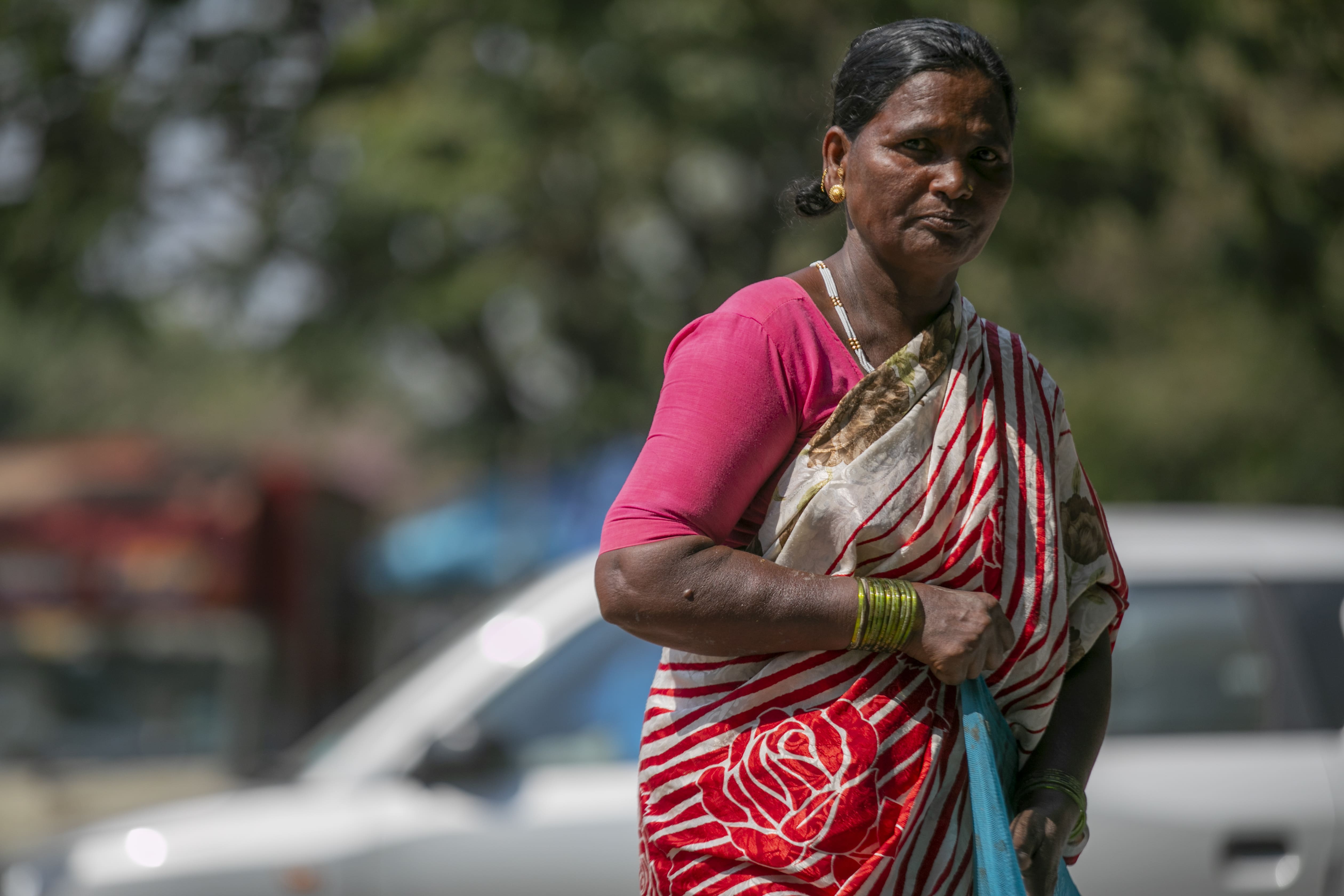Recycling Hope: The Programme Changing Lives and Fighting Plastic Pollution in India
December 31, 2024

Suvarna Ravi Magre (left), a 38-year-old mother of three who has spent two decades in waste collection. Financial challenges and societal stigma marked her journey, but things began to shift after she joined the PWM’s Utthaan project in Mumbai.
As India’s cities continue to grow, so does the waste they generate. By 2025, urban India is expected to produce 0.7 kilograms of waste per person daily, resulting in a staggering 42 million tons of municipal solid waste annually, according to the Ministry of Housing and Urban Affairs. Plastic waste. In particular, is a significant challenge, with the country producing 9.46 million tons annually. Unfortunately, nearly 40% of this waste remains uncollected, clogging rivers, polluting streets, and releasing greenhouse gases that contribute to 4% of the nation’s emissions.
The scale of the problem is enormous, but so is the resolve to address it. UNDP, in partnership with the Ministry of Housing and Urban Affairs, the Ministry of Social Justice and Empowerment, Hindustan Unilever Limited (HUL), and the Coca-Cola India Foundation (CCIF), is confronting this crisis head-on through its Plastic Waste Management Programme.
This initiative goes beyond waste management—it focuses on empowering the very people who manage it: the Safai Mitras, or waste pickers. These unsung heroes are integral to maintaining the cleanliness and functionality of our cities. Their tireless efforts are essential not only in addressing the growing waste crisis but also in promoting environmental sustainability. Their work is a testament to the resilience and determination that drives meaningful change, offering hope for a cleaner, more sustainable future. In doing so, the programme also advocates for dignity and respect for these individuals, recognizing their crucial role in fostering a cleaner world.

Suvarna Ravi Magre
The Human Face of Waste Management
In the narrow lanes of Mumbai and the bustling streets of Amritsar, the stories of Safai Mitras—waste workers—are often stories of survival. These individuals, at the forefront of the waste management ecosystem, bear the brunt of social stigma and occupational hazards. The PWM programme aims to change that, offering tools, training, and dignity to these unsung heroes.
Take Suvarna Ravi Magre, a 38-year-old mother of three who has spent two decades in waste collection. Financial challenges and societal stigma marked her journey, but things began to shift after she joined the PWM’s Utthaan project in Mumbai. Supported by Hindustan Unilever Limited (HUL) and implemented by Stree Mukti Sanghatana, the initiative helped Suvarna open her first bank account and enroll in social welfare schemes like health insurance and pensions.
“The demanding work we do can’t go on forever,” Suvarna reflects. “I want my children to focus on their education and build respectable careers.” Her story shows how small interventions can ripple out, transforming not just individual lives but entire families.
For Padma Eknath Wanjare, a 40-year-old widow and mother of three, the PWM programme has been a lifeline. Forced into waste collection after migrating to Mumbai due to drought, Padma’s life took a turn when she connected with Utthaan. With assistance, she linked her Aadhaar card to her Jan Dhan account, unlocking benefits like monthly payments and free medical care.
“Thanks to the health card, I received free treatment for my injury and can now spend more time with my family,” she shares, her optimism shining through despite the hardships. Padma’s resilience is emblematic of the determination of Safai Mitras nationwide.

Komal with her daughter. Their life changed when the PWM initiative, supported by the Coca-Cola India Foundation, helped her secure a bank loan to open her own waste shop.
Meanwhile, in Amritsar, Komal’s story is an empowering one – she picked plastic as a child but today, she has a small shop managing plastic waste! Komal’s life changed when the PWM initiative, supported by the Coca-Cola India Foundation, helped her secure a bank loan to open her own waste shop. She now leads a self-help group, training other women in composting and waste management.
“My daughter tells me, ‘Mummy, you’ve strived so much.’ I keep encouraging women to work—we must,” she says. Her entrepreneurial spirit illustrates how systemic support can foster independence and pride.
Scaling Up for 2024 and Beyond
The PWM programme isn’t just a collection of individual success stories; it’s a blueprint for systemic change. In 2024 alone, the initiative managed over 1,600 metric tons of plastic waste, with two Material Recovery Facilities (MRFs) operational in Mumbai to streamline the recycling process. Beyond infrastructure, the programme reached 38,000 Safai Mitras through a telephonic support system, guiding them to enrol in government welfare schemes.
This year, over 5800 Safai Mitras gained access to social protection measures, and behavioural change campaigns educated over 12,000 households on the importance of waste segregation. By embedding sustainability into daily habits, the PWM programme is sowing the seeds for a cleaner and greener future.

Komal, a Safai Mitra from Amritsar now owns a waste recycling shop.
A Circular Vision for India
The success of the PWM programme lies in its holistic approach. By combining technological innovation, social inclusion, and environmental leadership, it creates a replicable model for cities across India. At its core is the principle of a circular economy: minimizing waste, maximizing resource efficiency, and creating closed-loop systems where materials are reused and recycled.
For India, scaling initiatives like PWM is not just an environmental necessity; it’s an economic opportunity. Empowering waste workers transforms them from marginalized workers into key contributors to sustainable resource management.
The journey is far from over, but the PWM programme is proof that change is possible when people, policy, and purpose align. Through collaboration and innovation, it’s turning the tide on plastic pollution—one city, one worker, one piece of plastic at a time.

 Locations
Locations